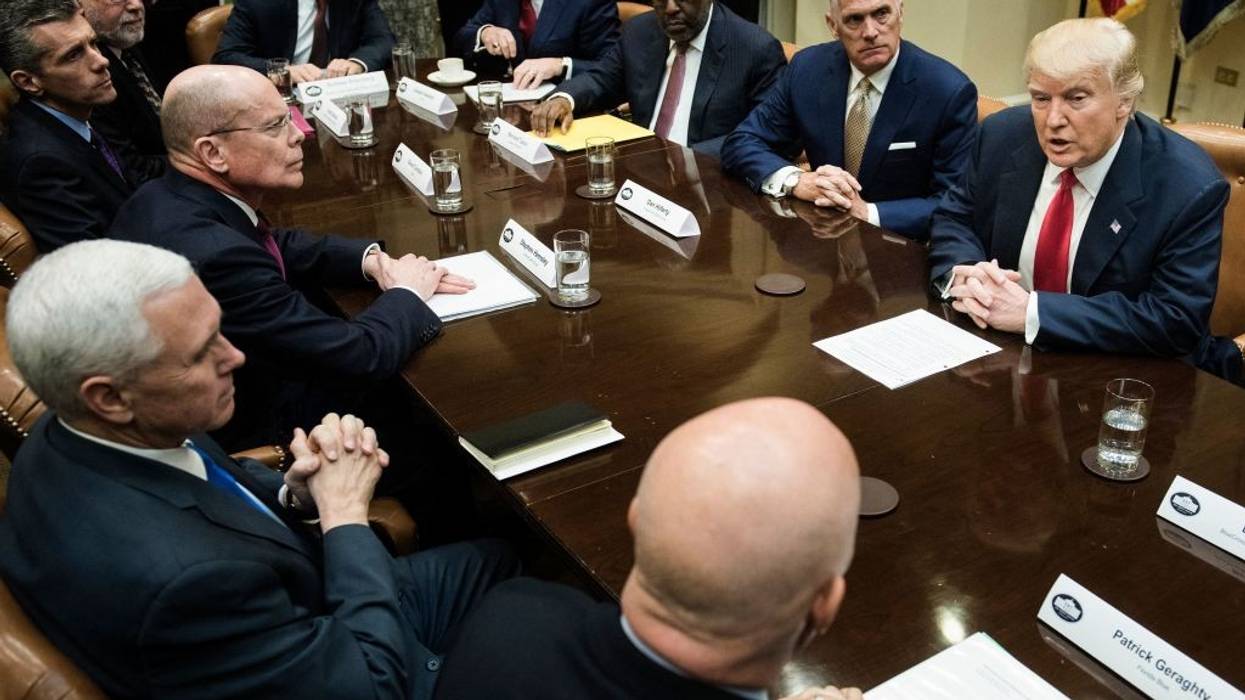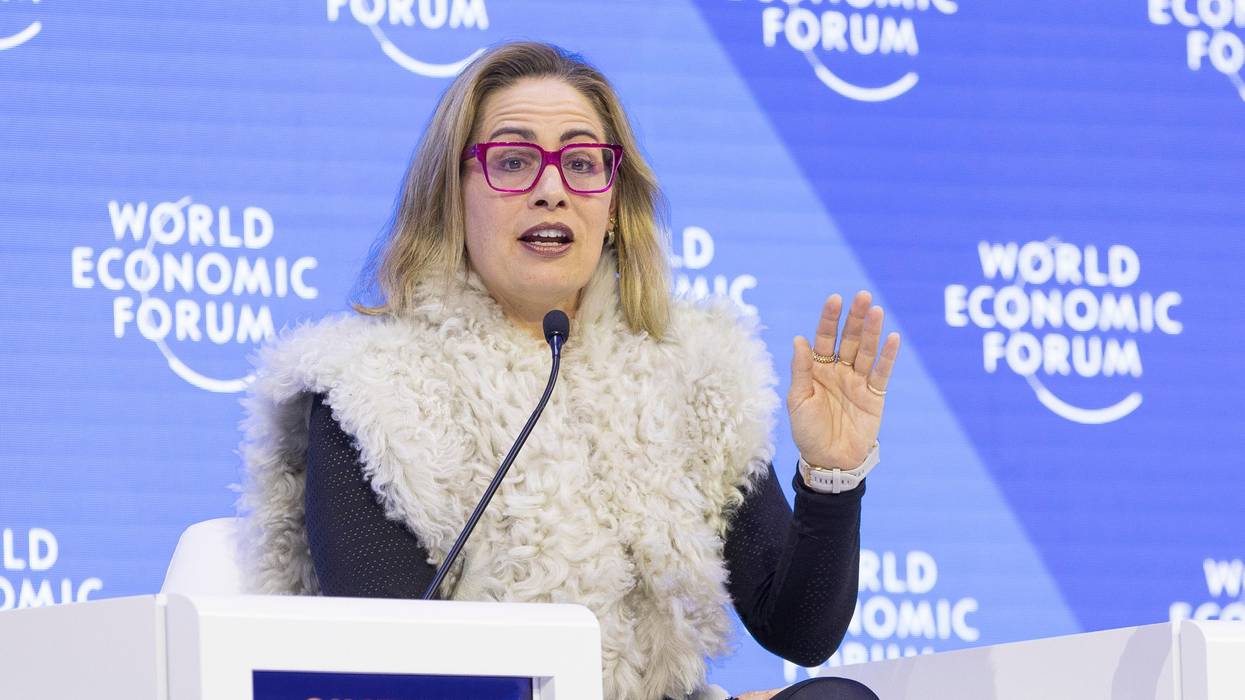King Trump and the Greedy Knights of the Business Roundtable
The nation's most powerful CEOs are lining up to fund Trump, because they and their corporations want another giant tax cut and rollbacks of regulations. It's as simple as that and there's a word for it: greed.
The Business Roundtable is an association of more than 200 CEOs of America’s biggest corporations, their most powerful voice in Washington.
Last Wednesday, its chair, Joshua Bolten, told reporters that his group planned to drop “eight figures” while “putting its full weight behind protecting and strengthening tax reform.”
Translated: It’s going to pour money into Trump’s campaign to ensure that Trump’s 2017 tax cuts — most of which benefit big corporations and the rich — don’t expire in 2025, as scheduled.
On Thursday, Trump met at the Business Roundtable’s Washington headquarters with over 80 CEOs, including Apple’s Tim Cook, JPMorgan Chase’s Jamie Dimon, and Walmart’s Doug McMillon.
Trump reportedly promised the CEOs he’d cut corporate taxes even further and curtail business regulations if elected president.
Trump’s 2017 tax cuts reduced the rate of corporate income taxes from 35 percent to 21 percent. That has cost the nation $1.3 trillion. Those tax cuts, along with the tax cuts put in place by George W. Bush, are the primary reason the national debt is rising as a percentage of the economy.
What have corporations done with the money they’ve saved? They haven’t invested it or used it to raise wages. Nothing has trickled down to average workers.
A large portion has gone into stock buybacks. The year after the tax cut went into effect, corporations bought back a record $1 trillion of their shares of stock. Buybacks raise stock prices — and, not incidentally, CEO compensation, which is largely in shares of stock.
Making Trump’s 2017 tax cuts permanent—as the Business Roundtable seeks—will cost $4 trillion over the next 10 years, $400 billion per year—and cause the debt to soar.
Yet the CEOs that Trump met with last week have been thriving under Biden.
Corporate profits are way up. Stocks are at near-record levels. Inflation has plummeted. Industries like energy that appeared to be at risk from Biden’s policies are doing well.
So why are these CEOs attracted to Trump, whose antics are likely to destabilize the economy?
Is it mere ideology?
Kathy Wylde, president and CEO of the Partnership for New York City (a nonprofit that represents the city’s top business leaders) relates that Republican billionaires have told her “the threat to capitalism from the Democrats is more concerning than the threat to democracy from Trump.”
In my experience, CEOs of large corporations are more practical than ideological. They’re coming around to Trump because they want even more tax cuts and regulatory rollbacks—which means even more money in their own pockets.
The Business Roundtable’s motto—“More than Leaders. Leadership”—suggests a purpose higher than making its CEOs and corporations richer.
In August 2019, the Roundtable issued a highly publicized statement expressing “a fundamental commitment to all of our stakeholders [emphasis in original],” including a commitment to compensating all workers “fairly and providing important benefits,” as well as “supporting the communities in which we work,” and protecting the environment “by embracing sustainable practices across our businesses.”
Signed by 181 CEOs of major American corporations, the statement concluded that “each of our stakeholders is essential” and committed “to deliver value to all of them.”
The statement got a lot of favorable press. But it was rubbish. At the time, Bernie Sanders and Elizabeth Warren were gaining traction in the 2020 Democratic presidential primaries with their criticisms of corporate America, and the CEOs of the Roundtable were worried. They needed cover.
Then, after the January 6, 2021, attack on the Capitol, many of these CEOs announced they wouldn’t provide campaign funds to Republican members of Congress who refused to certify the 2020 election.
Now, they’re lining up to fund Trump, because they and their corporations want another giant tax cut and rollbacks of regulations.
If the Business Roundtable’s CEOs were honestly committed to all their stakeholders, they wouldn’t seek massive tax cuts.
If they cared about preserving American democracy, they wouldn’t support Trump or any Republican.
The greedy cynicism of America’s corporate elite is now on full display.

